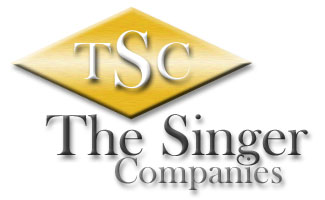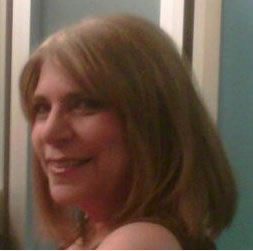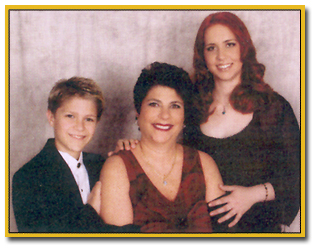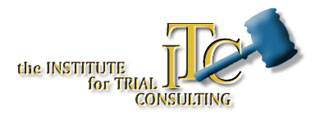 |
The
Singer Companies are dedicated to helping |

|
Amy
Singer, Ph.D. Trial
Consultants, Inc. |
Amy Singer, (born September 8, 1953), is a noted trial consultant and litigation psychologist. As one of its earliest, most influential, and heavily imitated practitioners, Singer helped to pioneer the field of trial consulting during the 1980s. Thanks to her revolutionary concepts and approach, Singer took what at the time was a rudimentary – and to many trial attorneys, probationary – discipline to a robust new level of professional practice, courtroom accomplishment and potent capability. By conclusively demonstrating to litigators that it is value beliefs, not juror demographics, which correlate most strongly with jury verdicts, Singer radically transfigured how litigators conduct voir dire. In the process, she thoroughly transformed the zeitgeist of trial planning and preparation for attorneys across the United States, and later, around the world.
Singer is a nationally recognized authority in the field of jury research, also known as litigation research or litigation psychology. She is a leader in blending the tools of behavioral science, applied research, statistics, measurements, and strategic and psychological analysis to help attorneys win their court cases and other legal disputes. Singer is a leading expert and industry trendsetter concerning the application of jury focus groups, jury simulations, mock trials, voir dire strategy, jury surveys, witness evaluation, shadow juries, attorney rehearsals, and related professional activities.
Singer is a prolific author and popular speaker concerning litigation research, trial consulting, and related topics. The media regularly call upon her as a jury expert concerning newsworthy trials. She has been interviewed or featured in articles concerning jury research and related topics in numerous national publications, including The New York Times and The Wall Street Journal. She also served as courtroom consultant for the NBC and FOX television station affiliates in Miami. Additionally, Singer was a columnist for the Miami Daily Business Review.
Jury Research
Singer was one of the first professionals in America to employ sophisticated psychological research, measurement, and analysis techniques and methodologies to help attorneys pick favorable jurors and most effectively plan and present their court cases.
In 1978, after receiving her doctorate in applied research psychology from Hofstra, Singer moved back to South Florida, the area where she grew up, to find work. One friend who was a trial attorney invited Singer to observe him while he questioned voir dire panelists for an upcoming criminal trial. Fresh from her studies and casework in applied research, Singer was surprised at the attorney's ad hoc, and seemingly purposeless, approach to question the potential jurors.
Later, in discussing his voir dire questioning method with the attorney, Singer learned that he was simply following the customary practice of most litigators at the time, who almost never asked about the potential jurors' real attitudes concerning the case's primary issues. Doing so, the majority of attorneys feared, might "contaminate" the other panelists. Indeed, most attorneys would never ask voir dire panelists about the case's key issues and problem areas because of the supposed contamination factor. Singer was shocked that the majority of trial attorneys adopted this head-in-the-sand approach during voir dire concerning their cases' most contentious – and thus most important – issues.
Further, Singer learned that many attorneys were using their voir dire questions in a futile – and inadvertently insulting – attempt to control and contain the jurors, and the decisions they would make during deliberations. To illustrate: "You understand, of course, that it would be incorrect to reduce the money to which my client may be entitled simply because it is a large amount."
Prior to Singer's intervention, along with that a handful of other trailblazing pioneers who during the 1980s were creatively defining the parameters for the new discipline known as trial consulting, the majority of attorneys regarded juror selection as a dangerous crapshoot. Thus, most would not venture much further with potential jurors than attempting to learn their names and occupations, demographic characteristics, life experiences, and so on. The truth was that, at the time, most attorneys simply did not know what to ask potential jurors. Further, they were afraid that the questions they did ask might somehow backfire later against their clients and themselves during deliberations.
Considering these deficiencies, it is not surprising that most attorneys, performing by themselves, did poorly in picking jurors. Indeed, in a research study conducted by a psychology professor at Northern Illinois University, lay persons performed better at picking jurors than trial attorneys. The study indicated that attorneys would do better by picking the names of jurors blindfolded out of a hat, rather than using their ill-founded voir dire questioning non-technique.
Based on her initial exposure to this unsophisticated voir dire approach, Singer quickly saw an opportunity to use her expertise and knowledge in applied psychological research to help attorneys pick jurors more effectively. Before almost anyone else, Singer understood this key truth concerning jury selection: Voir dire is far more of a psychological process than it is a legal one. Thus, attorneys need to utilize pre-trial jury focus groups and jury simulations, based on proven applied psychological research principles, to know how to proceed most effectively during the voir dire questioning process of potential jurors. Singer quickly decided to set up a private litigation research firm, one of the first such professional practices in the United States (1979). She called her firm "Trial Consultants, Inc.," thus coining the name for the industry that would rapidly grow in the years to come.
The litigation research techniques Singer helped to develop and perfect during the early 1980s, including jury focus groups and jury simulations, represented a bona fide paradigm shift in trial strategizing and preparation. Such tools provide trial attorneys with otherwise previously unavailable and invaluable intelligence regarding what voir dire panel members will consider to be the core issues of the case, and how they are liable to react to those issues emotionally and intellectually. Such research enables attorneys to determine the ideal voir dire questions to ask that will most effectively ferret out juror bias. Singer led the way in the development and practical application of jury focus groups, jury simulations, and mock trials. During the lengthy course of her career, Singer has likely conducted more jury focus groups (some 15,000) than any other working professional.
Thanks to the groundbreaking advances by Singer, as well as a few other early practitioners regarding their newly organized jury research techniques, attorneys finally had a logical rationale for their voir dire questions, thus eliminating the unnerving pinball aspect of voir dire that existed previously.
In the specialized jury research system Singer helped to conceptualize and develop, litigation psychology activities – and specifically jury focus groups and jury simulations – enable attorneys to precisely test market how jurors will respond to a particular trial presentation strategy, including the trial theme, the opening statement, the closing argument and other key case aspects. Such research functions like a Rorschach test, illuminating jurors' cognitive processes, and what they consider most important about the cases they are legally charged to decide.
Additional benefits of jury research, as structured by Singer for her clients: helps attorneys determine how to break complex arguments down into easy-to-understand concepts, often expressed through analogies and metaphors; supports or rejects the supposed case hypotheses; shows what the jurors want to hear, and how and when they want to hear it; demonstrates the best way to reframe the trial issues to achieve the maximum positive reception; notes key words and their emotional associations and psychological valences with jurors; helps to assess numerous trial factors, including the effectiveness of the evidence, lawyer and witness believability, and potential damages amounts; and helps to avoid "surprise" verdicts.
Singer was one of the first professionals in the United States to employ focus groups for the purposes of persuasion research, something rarely accomplished anywhere in the world previously. She organized jury focus groups and jury simulations with individuals who were representative of the venues where her attorneys' cases were being tried, and then repeatedly tested to see which trial presentation strategies and elements would most favorably dispose these individuals to decide the relevant court cases in favor of her attorneys' clients.
Through such jury focus group and jury simulation research, as well as litigation surveys and other pre-trial testing/polling procedures, Singer helped her attorney clients discover well in advance how jurors were likely to think and feel about their upcoming cases, and what would be most important to them regarding these disputes. Such pretrial intelligence enables attorneys to develop the most winning trial presentation strategies, as well as to know, with the highest degree of available certitude, which potential jurors to de-select during voir dire. All of this was radically new to most attorneys at the time.
In the Singerian methodology, the organization of jury focus groups and jury simulations is not an art – it is a science. This approach employs actuarial methods based on experimental design. Its product is the statistical analysis and interpretation of systematically collected scientific data concerning probable jury responses to selected stimuli (oral arguments, witness testimony, demonstrative evidence and so on).
In this jury-validated system, nothing is intuited. When Singer and a few others helped to introduce the concept of litigation research, its hitherto unavailable degree of scientific certitude concerning jury attitudes and predilections represented a major change to the "keep your fingers crossed" approach many attorneys had previously employed regarding jurors' verdict decisions.
Based on the reliable data uncovered during jury research, attorneys can significantly increase the probability of developing the most effective trial presentations, and of impaneling the ideal juries for specific cases. In effect, jury focus groups and jury simulations help attorneys "read the jury," and thus understand and shape the decisions jurors make. Such psychological testing substitutes hard research data for hunches regarding how the attorney should plan his or her case, and which jurors should be seated.
Early in her career, Singer transformed the prevailing voir dire philosophy of many trial attorneys. For example, she discovered that most attorneys were "demographic-dependent," that is, they based their juror selections largely on demographic factors such as sex, race, ethnicity, age, religion, and so on. Singer, as well as other jury researchers, determined that no correlation exists between jury verdicts and demographics. In counter to the accepted wisdom at the time (which despite scientific evidence carries over among some traditionally minded attorneys who practice in the current era), a juror does not decide a case because, for example, she is an affluent Jewish grandmother, or he is a retired African-American U.S. Army colonel. Instead, people decide such important issues as verdict decisions based on their core values and beliefs.
Thus, from the start, Singer organized her jury focus groups and jury simulations to help uncover the all-important value beliefs of jurors regarding a particular case. No other information the attorney can discover about jurors is as critical as what their basic value beliefs may be, i.e., the core internal precepts by which they think and operate. Extensive jury research now shows that is value beliefs that most clearly correlate with jury verdicts, not demographics, life experiences, or any other factor. The attorney can utilize this valuable information concerning the potential jurors' internal attitudes, which will translate into external opinions, prejudicial and otherwise, that will be expressed regarding the primary case issues. As a result, the attorney will be in the ideal – and previously unattainable – position to know what type of biased jurors to de-select during voir dire. This greatly increases the opportunity for favorable verdicts.
The above represents the essence of the Singerian methodology for jury research. It has been much copied and has had a major influence on the professional field of trial consulting as it exists today.
Trial Consulting
During the 1980s, Singer played a key role in the acceptance and popularity of trial consulting and litigation research by trial attorneys across the United States. Famous litigators, including J.B. Spence and Roy Black, as well as Edward Bennett Williams and Bob Montgomery, the latter two attorneys both now deceased, retained Singer to provide litigation research and trial consulting services in support of their various high-profile trials.
These noted trial masters were members of the prestigious Inner Circle of Advocates, an invitation-only group limited to individuals acknowledged to be the top 100 plaintiffs' attorneys in the United States. Soon, the majority of the 100 members of the Inner Circle were routinely using Singer to assist with their own cases. Since these were the most successful and influential plaintiffs' attorneys in the United States, it was not long before other lesser-known attorneys across the United States began to add a litigation research/trial-consulting component to their own court cases.
As a result, numerous psychologists and other social scientists, along with professionals from other diverse fields, began in the 1980s and 1990s to adapt their practices to offer trial consulting services to fill this growing need. Thus, the nascent field of trial consulting began to take form and take off. Filling a clear need, it expanded tremendously over the years. Currently, the American Society of Trial Consultants has 400 members, which does not represent the total number of individuals operating as trial consultants throughout the United States (estimated to be in the thousands). A significant number of neophyte trial consultants interned and learned their craft under Singer.
To further promote the acceptance of trial consulting within the legal profession, Singer periodically delivered lectures on litigation research at various annual judges' colleges, as well as during numerous seminars for judges. Thanks to her pioneering efforts and signal success working with America's best-known litigators, as well as the efforts of other early trial consultants, the employment of litigation research methodologies is now common practice for most major cases. In fact, because of its widespread acceptance and use today, not including a trial consultant as part of the trial team might even be considered legal malpractice.
Currently, trial consulting involves numerous specialty disciplines and activities. These include case theory and presentation planning (including opening statement, closing argument, and trial theme planning, development, and testing), jury focus groups and jury simulations, voir dire strategy, mock jury trials, graphics and demonstrative evidence, post-trial juror interviews, psychological evaluations of trial players, trial testing technology, deposition preparations, supplemental juror questionnaires, witness preparations, change-of-venue studies, community attitude surveys, and more.
In addition to her work developing and perfecting many of the jury research techniques and methodologies now commonly used by trial consultants across the United States and around the world, Singer also was one of the first professionals to use sophisticated electronic measurement technology to gauge jurors' instant (visceral) reactions concerning specific trial segments being simulated – witness testimony, demonstrative evidence, and so on. She also was a leader in showing attorneys how to apply classical conditioning techniques with jurors, and how to use sophisticated neurolinguistic programming (NLP) techniques to positively influence them.
Singer also helped to originate the use of supplemental juror questionnaires to add to the information secured about jurors during voir dire questioning; as well as litigation intelligence surveys, precise and highly focused polls of the jurisdictions in which cases will be tried. She also was one of the first trial consultants to utilize psychodrama techniques to help catastrophically injured plaintiffs get in touch with their own painful thoughts and feelings concerning their physical tragedies, and thus reveal those feelings to others, including jurors during trials.
Additionally, Singer was the first professional to introduce the concept of the "psychocentric juror," that is, an individual who always personalizes all issues of legal contention negatively against those involved. For example, a psychocentric juror may not be inclined to support a plaintiff who is suing for wrongful termination because, "I lost a job once before too, but I didn't make a federal case about it." A psychocentric juror will almost always find it impossible to identify or sympathize with anyone else, including plaintiffs in civil trials.
Along with her voir dire and jury selection expertise, Singer became one of the leading U.S. experts concerning witness preparations. In fact, except for a link to a commercial witness preparations firm web site, the first hit returned by Google in a search of the phrase "psychology of witness preparations" is Singer's seminal article on the topic, as published in Trial magazine. It is then followed by seven pages of additional hits (more than 100), all derivative references by various legal and other experts, organizations, and publications to Singer's original, and highly influential, article on the topic.
Cases
During her more than three decades of trial work and professional practice, Singer and her associates have worked on more than 15,000 civil and criminal cases. Most of these were for plaintiffs, but she also worked on the defense side. Some of Singer's most prominent cases: In 1995, she served as trial consultant for the State of Florida in a high-profile litigation in which the Sunshine State sued American tobacco companies to recover Medicaid expenses for smoking-related diseases. This resulted in a massive $11.3 billion settlement, with an agreed-upon payout by the tobacco companies to the State of Florida over a 25-year period.
Singer served as trial consultant for the plaintiff in a 1994 sexual battery case brought by the family of a 13-year-old California boy against singer Michael Jackson, now deceased. The case ended in a $25 million settlement for the plaintiff. In 1990, Singer served as trial consultant for the trial team representing the legal interests of Kimberly Ann Bergalis, a young Fort Pierce, Florida, woman who sued her dentist for allegedly infecting her with the HIV virus. The case resulted in a $1 million settlement for Bergalis, who had been diagnosed with AIDS in 1987 and died in 1990.
In 1991, A Current Affair contracted with Singer to have her organize a televised shadow jury in conjunction with the high-profile William Kennedy Smith rape trial in West Palm Beach, Florida. The shadow jurors' televised deliberations concerning the trial, which lasted for 10 days, represented a first for network television. Roy Black, the Miami defense attorney for Smith, reportedly watched the shadow jurors' nightly deliberations on television to determine how well his case was going. When the trial concluded, Singer's carefully selected shadow jurors rendered the same not-guilty verdict as the actual jury.
Singer also worked as trial consultant on the plaintiffs' side on some of the major U.S. class-action lawsuits of the past 25 years, including cases brought against Firestone, State Farm Insurance, Chinese dry wall manufacturers, and others. she has worked on high profile criminal cases for Dr. Jack Kevorkian and Casey Anthony.
Most recently, Dr. Singer worked on the Casey Anthony case leveraging social media for trial strategy.
Education and Certification
Singer is a 1975 graduate of Hofstra University, Hempstead, New York, where she majored in psychology (magna cum laude, dean's list, and Psi Chi National Honor Society). She received her master of arts (1977) and her doctorate (1978) in applied research psychology from Hofstra. Singer is licensed in clinical psychology in New York. She is a past instructor in the "Psychology of Jury Selection" at Nova Southeastern University, Fort Lauderdale. From 1982 to 1984, Singer was a part-time member of the Department of Psychology, Florida International University, Miami-Dade County, Florida.
Honors and Memberships
Singer is a member of the American Society of Trial Consultants (1985 to present) and the American Psychological Association (1979 to present). She is a past member of the Women's League for Israel and the Young President's Club at Mount Sinai Hospital (Miami Beach). She is listed in Who's Who in the South and Southwest (1984 to present).
Publications and the Media
Singer has written numerous professional articles on litigation research, trial consulting, trial presentation, voir dire, jury focus groups, witness preparations and related topics. These articles have been published in leading legal and trial magazines, including Trial, Trial Lawyers Quarterly, The Practical Litigator, Trial Diplomacy Journal, Leader's Product Liability, Law Office Economics & Management, Wiley Expert Witness Update, The Law Works, and many others. She also authored The Psychologist and the Jury, Matthew Bender Publishers.
With attorney Pat Maloney, Singer is the co-author of the three-volume Trials and Deliberations: Inside the Jury Room, a compilation of transcriptions and analyses of mock jurors' real-life discussions concerning every conceivable civil trial proceeding, including numerous medical malpractice areas, as well as cases concerning defamation, slip and fall, products liability, commercial disputes, and many more. The book was the first of its kind to provide actual juror deliberations regarding virtually every cause and/or action for civil trial disputes, as well as professional commentary interpreting the significance of the case-by-case deliberations. Shepards/McGraw-Hill published the book in 1992. Additionally, Singer has been a contributing author to the Wiley Expert Witness Update, published by Wiley Law Publications.
In addition to her many bylined articles and books, Singer and/or her professional practice have been cited in numerous publications, including The New York Times, The Wall Street Journal, Psychology Today, Ladies' Home Journal, The Boston Globe, The Miami Herald, Fort Lauderdale Sun-Sentinel, Orlando Business Journal, St. Petersburg Times, Los Angeles Daily Journal, San Francisco Daily Journal, The American Lawyer, The Miami Daily Business Review, and Lawyers Weekly USA.
Speeches
During her career, Singer has been one of the most popular lecturers on the public speaking circuit for attorneys, presenting year after year on jury research topics to standing-room-only audiences across the United States. Organizations that have sponsored Singer's presentations include Academy of Florida Trial Lawyers, American Bar Association, American Trial Lawyers Association, Broward County Bar Association (Florida), Miami-Dade County Bar Association (Florida), Florida Bar Association, American Law Institute, State Bar of Texas, Stetson University, California Bar Association, American Association of Legal Nurse Consultants, University of Washington Law School, Wyoming Trial Lawyers, Southern Trial Lawyers, Florida Defense Lawyers, Washington State Trial Lawyers, Colorado Trial Lawyers Association, Arkansas Trial Lawyers, Missouri Trial Lawyers, Kansas Trial Lawyers Association, Ohio Trial Lawyers Association, Arkansas Trial Lawyers Association, Ft. Lauderdale Claim Association, Miami-Dade Defense Bar, National Employment Lawyers Association, Miami Beach Bar Association, AFTL Workhorse Seminar, Florida Inner Circle Convention, ALI-ABA Advanced Law and Litigation Program, OATL Seminar, Trial Lawyers Seminar, and DRI.
Professional Firms
Singer is founder and CEO of these professional firms: The Singer Companies, Ft. Lauderdale, the parent company for Trial Consultants, Inc., (jury research and trial preparation services); Litigation Consultants, Inc. (litigation think tank comprised of some of the United States' best known litigators); Trial Communications, Inc. (technical support for trials and settlement negotiations, including demonstrative evidence); and Institute for Trial Consulting (educational services concerning litigation research techniques and methodologies for litigators). Additionally, Singer is founder and CEO of Triple L Land & Livestock, (show horses for sale and lease).
Personal
A resident of Gainesville, Florida, Singer is the mother of two children: Danielle, born in 1986; and Greg, born in 1990. Despite her busy professional schedule, constantly flying across the United States from one professional engagement to the next, Singer homeschooled both of her children, but in a unique fashion. The children routinely flew with Singer on her professional trips, along with a teacher Singer hired to regularly instruct her children and attend to their needs when she was professionally engaged.
A single parent with an active and demanding professional practice, Singer realized that if she did not have her children with her while she was on the road and in the air, she would never see them, nor they her. Thus, she made the decision to attend personally to their homeschooling while also maintaining her schedule as a busy trial consultant serving clients nationwide. In 1993, the Miami Herald recognized Singer's valiant homeschooling efforts for her children with the publication's prestigious "Mother-of-the-Year" award, a distinction the psychologist regards as her highest honor.
Daughter Danielle now lives in Gainesville with her children Hannah born in 2007, Ava born in 2010, William born in 2012 and Brandi born in 2015
She is the CFO of The Singer Companies. A talented musician who can play any musical instrument by ear, son Greg attends University of Colorado where he majors in music and multimedia communications.
In 2001, in honor of her parents, now deceased, Singer funded the development and operation of the Paula and Harry Singer Community Center, in Weston, Florida. The community center is a chabad, part of the Hasidic movement in Orthodox Judaism. Singer serves on the center's board of directors and functions as its fund-raising chairperson. Now semi-retired, Singer breed, raises, and sells or leases Welsh ponies on her horse farm, located in Alachua, Florida, near Gainesville. The horse farm is part of Singer's Triple L Land & Livestock company.
Trial Preparation, Consulting &
Other Professional Litigation Services

|
The Institute for Settlement SciencesSM is a scientific and educational organization for creative strategies, presentation design, persuasion techniques, and evidence and discovery mapping for the purpose of arbitration, mediation, and alternative dispute resolution. |
|
Singer
Web Search is |
|
|
Case Track is a password-protected cyber-file area developed specially for Trial Consultant attorney/clients. Attorneys have 24-hour access to all the information, research, and other pertinent data during the processing of their cases. |
|
Other Singer Company Web Sites
|
|
|
| Class
Action Equine Leasing provides fine show horses for sale and lease with an exclusive cash-back program that has never made having a quality horse more possible. |
|
|
|
|
| Gregory Blake Singer – In Memoriam Musican/Producer |
|






